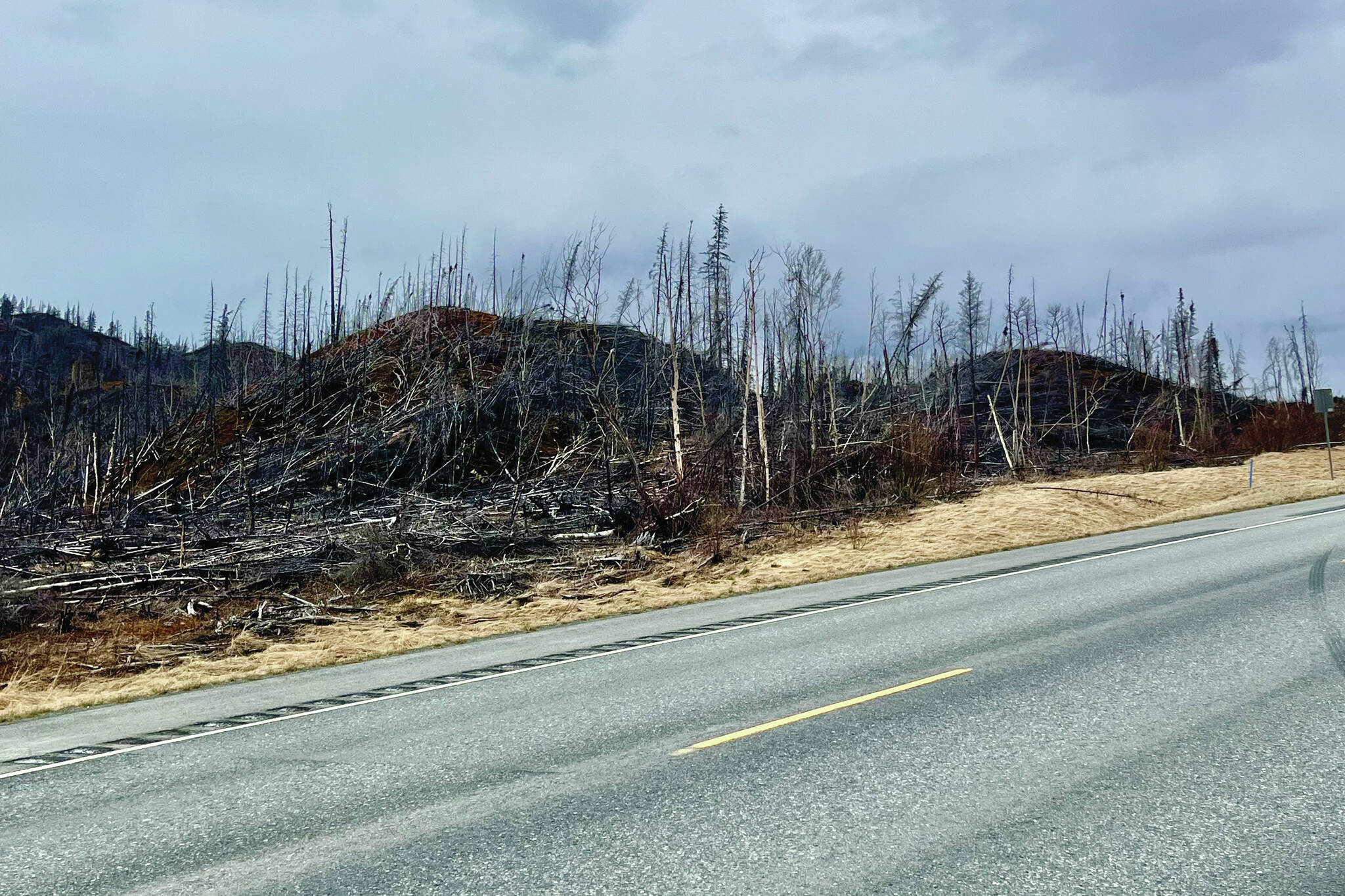In 2019, we experienced the Swan Lake Fire. It was unlike anything I have ever experienced in my life. I remember the images of people driving through smoke- and flame-covered roads, where they could feel the heat inside their cars. I worried for our first responders, begging friends to fly to Anchorage and not add another vehicle to that chaos.
Since then, every time I drive through the area, I look at the burnt trees that remind me of the Dr. Seuss stories of my childhood. What remains of that fire looks like a black and white version of the Lorax — little puffs of black on trees that look like cotton swabs gone dark. It’s hard to believe that it was five years ago this summer that those fires happened, because the trees look like they were burned yesterday.
But since it happened five years ago, I expect the trees to have regrown by now. I expect there to be lush grass and beautiful spruce trees back where they once were. It’s not logical, but I expect it.
Over the last several weeks, I have had more and more conversations with people who feel isolated, ignored, forgotten and lost. I gently remind us, “Yes, it was a hard winter followed by a rainy summer … ” but it’s deeper than weather.
As much as I don’t want to be back in the thick of our COVID lockdown era, I remember that during crises, we come together. I made way more phone calls to check on folks, I let people know if I was going to the grocery store and could grab them anything, I had more parking lot gatherings and Zoom hangouts. I was intentional about showing care for others during that crisis.
In the same way, during the fires of 2019, we checked in with each other about supplies — “Did you get what you needed at the store? I know the shelves were pretty empty with the trucks being stuck on the other side of the fire.”
“Did you pack an emergency box? I have some extra bottled water, if you need it.”
Crisis mode, while terrifying, brings out a collective care for one another that is beautiful to witness in the moment. And then, goes by the wayside when we get pulled into our daily non-crisis centered lives.
I invite you to consider what bit of care or compassion you showed to your neighbors or friends during any of the crises in your life and consider making that a regular practice. Check in before a grocery run, grab a bouquet of flowers for your neighbor who lives alone, invite someone you haven’t talked to in awhile to go on a walk, set up a Zoom game night with friends who live out of state.
Instead of passing by the charred Lorax trees in the Sterling flats and remembering the horror of that season, I hope to remember the ways in which we showed up and can continue to show up for one another in community. Want to join me?
Peace,
Pastor Meredith Harber ministers at Christ Lutheran Church, 128 N. Soldotna Ave. Worship is at 10 a.m. on Sundays in person or on Facebook Live.

